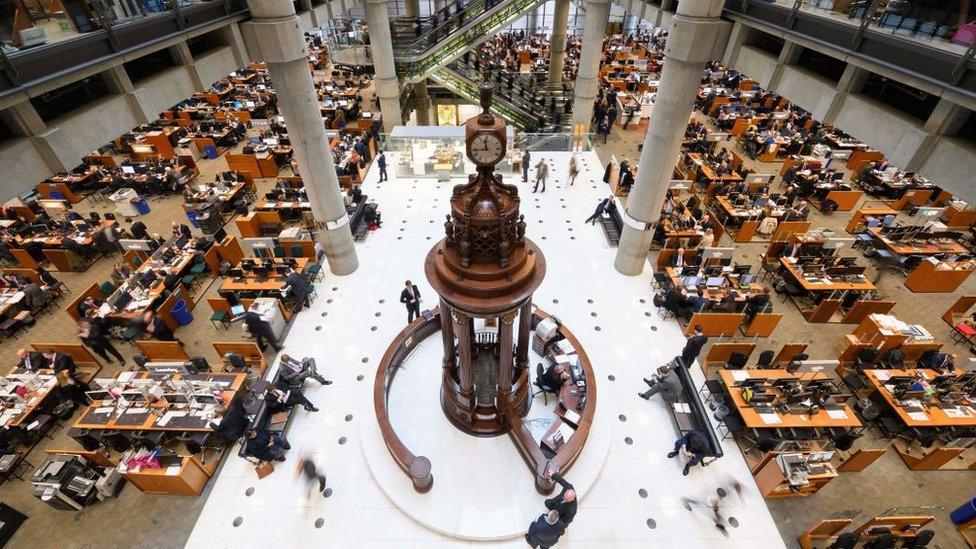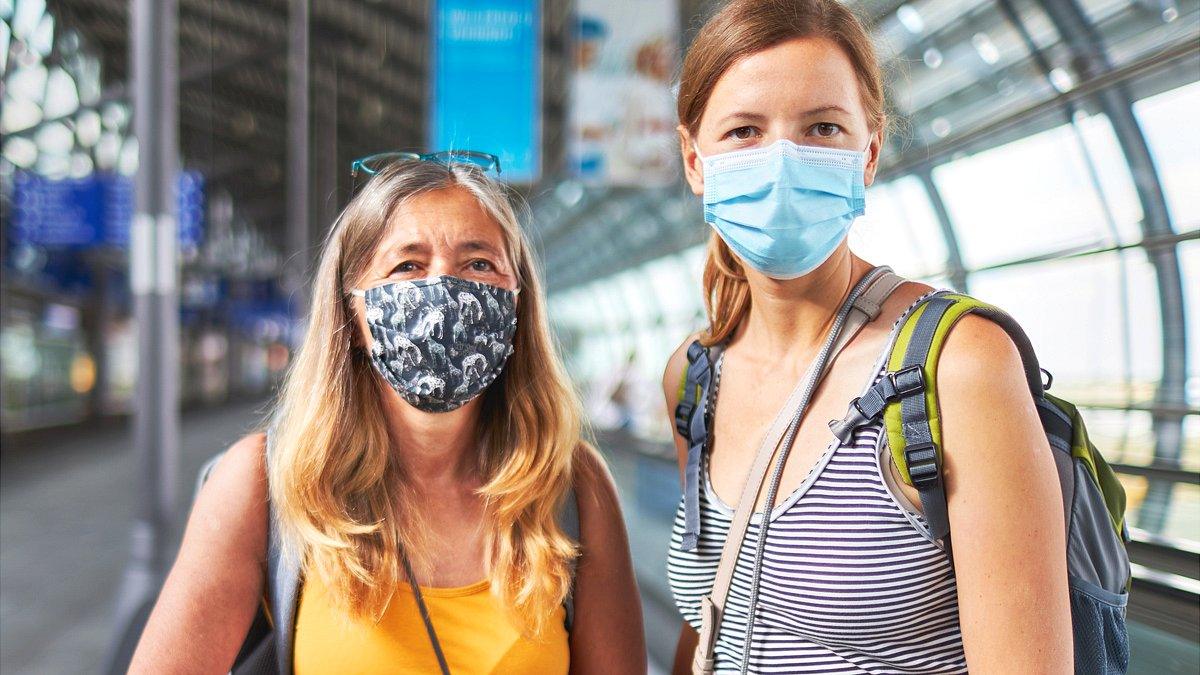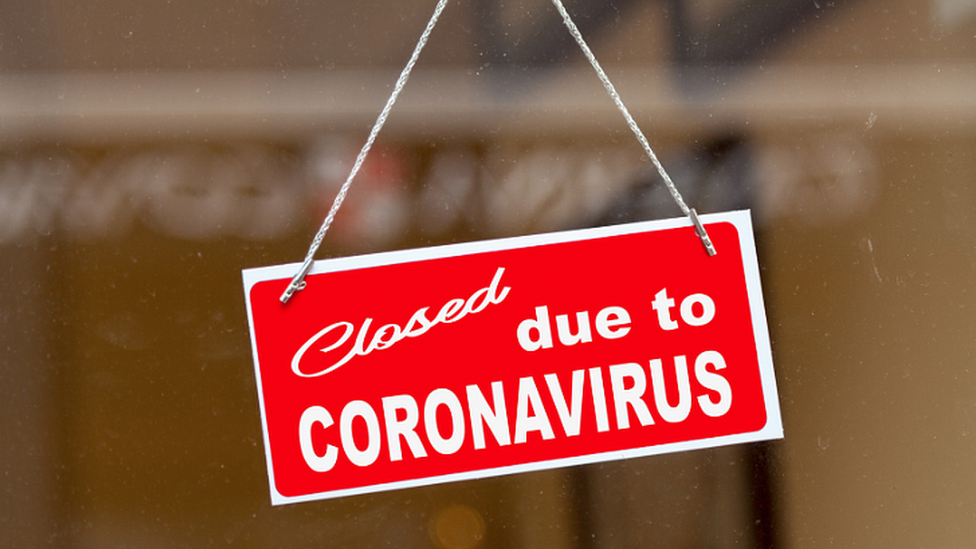Coronavirus: Lloyd's of London expects to pay out £5bn in claims
- Published

Insurance market Lloyd's of London has said it expects to pay out up to £5bn for coronavirus-related claims.
Its chief executive John Neal said the first half of the year had been "exceptionally challenging".
Insurers around the world have paid out on event cancellation, travel, trade credit and business interruption policies due to the virus.
However, there are court cases continuing to try to get some insurers to pay out for Covid-related losses.
The Lloyd's of London insurance market, whose results are an aggregate of its more than 90 syndicate members, said it would pay out £2.4bn in pandemic-related claims in the first half, after reinsurance recoveries.
It reported a half-year loss of £400m compared with a £2.3bn profit in the first half of 2019.
While coronavirus-related payouts could be up to £5bn, Lloyd's reinsurance covers £2bn of that amount.
But losses due to the pandemic could stretch into future years, chairman Bruce Carnegie-Brown said. "Nobody knows when it started, we certainly don't know when it's going to end."
'Catastrophic damage'
Chief executive John Neal said: "The first half of 2020 has been an exceptionally challenging period for our people, our customers, and for economies around the world.
"The pandemic has inflicted catastrophic societal and economic damage calling for unparalleled measures to stifle the spread of the virus, and to get businesses and economies back on their feet."
Insurers around the world have been hit by the cost of the coronavirus pandemic, although many businesses that have tried to claim have found the virus is not covered by their policies.
In July, the Financial Conduct Authority (FCA) brought a UK case to try to bring clarity as to whether business interruption policies cover Covid-19.
Mr Neal conceded on the BBC's Today programme that £5bn was not that big a payout considering the scale of the pandemic.
"It's a real issue, isn't it, when you look at systemic and complex risk, whether it's business interruption, or cyber, or climate," he said.
"And that's why we've been very engaged with government to say: 'Look, [this is] what can we do as an industry, and what can you do, to ensure that businesses and people are better protected when these events come along'."
Mr Neal said the court judgement on the FCA case was due next Tuesday, and that would be "good for customers, and good for the industry, so everyone knows exactly where they stand as to what is covered and what isn't covered".
He said that while there were also court cases in the US to try to determine whether businesses are covered for the pandemic, the risks to insurers of an unfavourable ruling is "in the hundreds of millions, not the billions".
He added: "The reality is, and it's unfortunate, the vast majority of policies do not provide cover for this type of loss, and we're as bothered by that as anything, to try and make sure that next time around, whatever the event, customers have had the opportunity to buy the right products and services."
Impact on premiums?
Industry body the Association of British Insurers (ABI) said that Covid-19 had been "an unprecedented event", not just for the UK insurance market, but for everyone in the UK.
"Global pandemics are by their nature very rare, unlike for natural disasters like bad weather, such as storms and floods, which are usually insured against," an ABI spokesman said.
He said that while many businesses will not have taken out policies that cover Covid-19, the trade body still expects the UK insurance industry to pay out more than £900m for coronavirus-related claims, and £275m to travellers forced to cancel travel plans.
It is unclear whether or not this would feed through to consumers having to pay higher premiums across the board.
"The UK insurance market remains a competitive one, with individual insurers setting their premiums to reflect their own exposure and level of claims paid. These will naturally vary between individual providers," he said.
- Published20 July 2020

- Published29 November 2021

- Published15 April 2020
